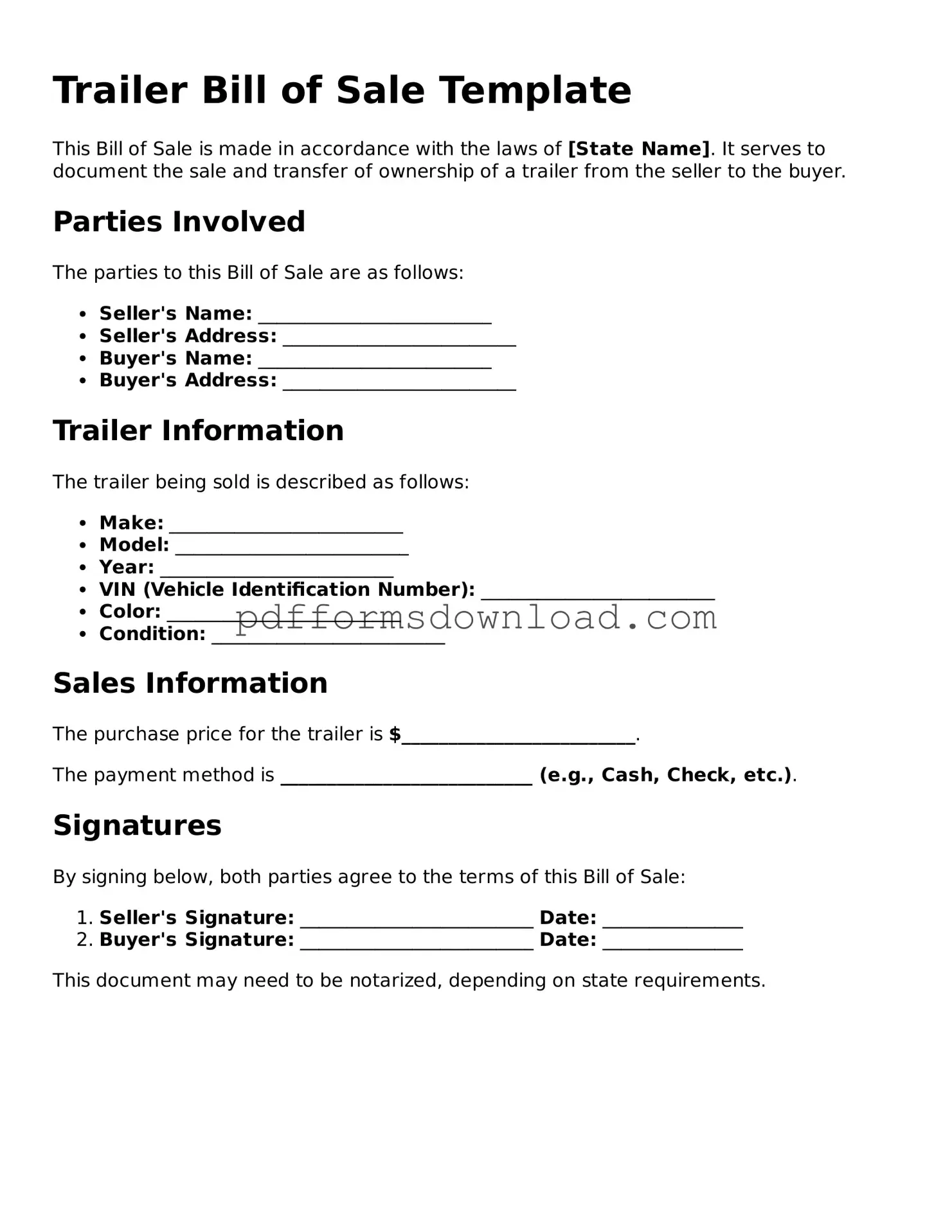Official Trailer Bill of Sale Document
The Trailer Bill of Sale form is a legal document used to transfer ownership of a trailer from one party to another. This form provides essential details about the trailer, including its make, model, and identification number, ensuring a clear record of the transaction. Completing this form is crucial for both the buyer and seller to protect their interests.
To fill out the form, click the button below.
Make This Document Now

Official Trailer Bill of Sale Document
Make This Document Now

Make This Document Now
or
Free PDF File
Your form is almost ready
Complete your Trailer Bill of Sale online — edit, save, and download easily.